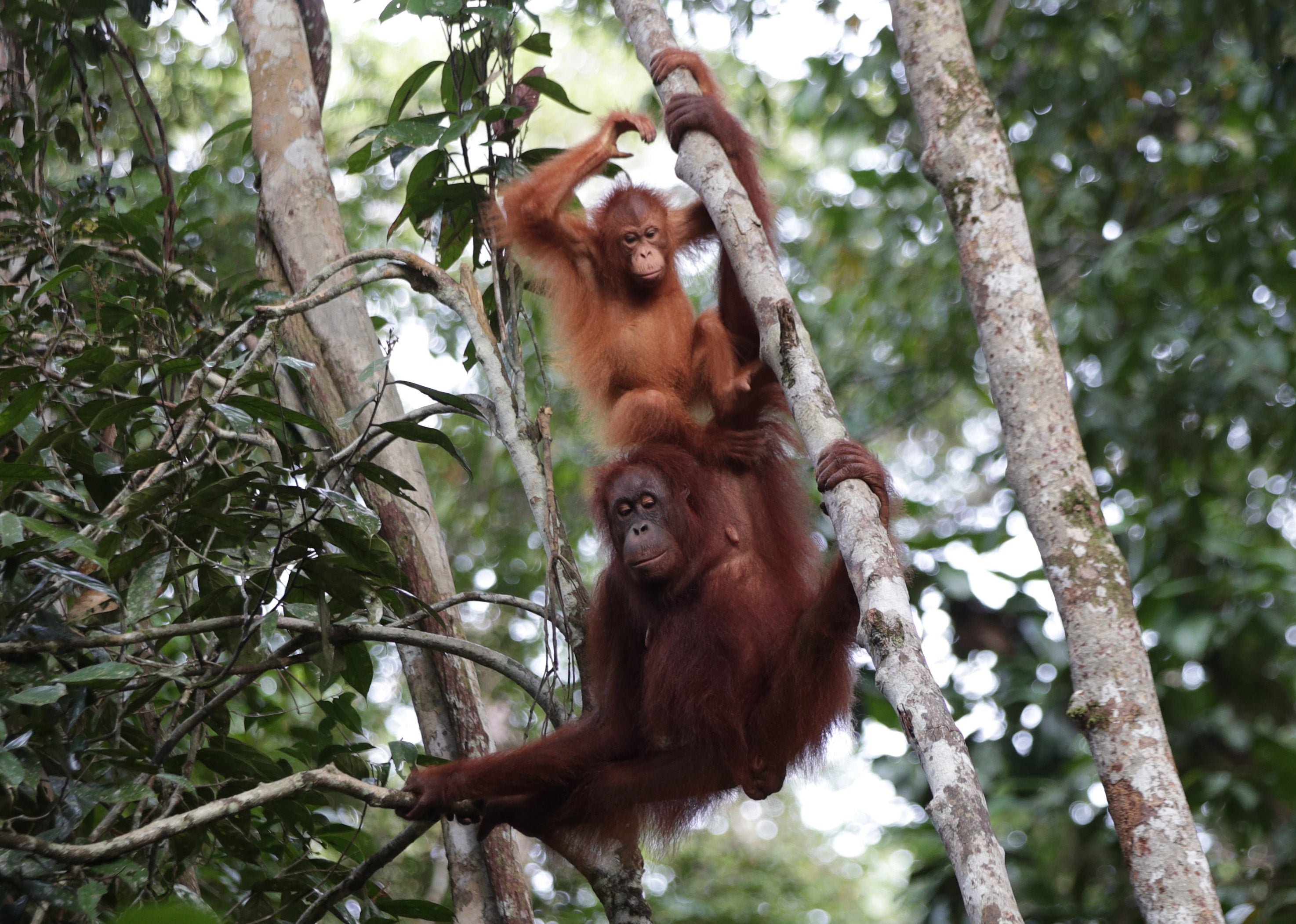Orangutan vocabularies ‘shaped by social mingling, like in humans’
The findings contribute towards the understanding of the origins and evolution of language, researchers suggest.

Your support helps us to tell the story
From reproductive rights to climate change to Big Tech, The Independent is on the ground when the story is developing. Whether it's investigating the financials of Elon Musk's pro-Trump PAC or producing our latest documentary, 'The A Word', which shines a light on the American women fighting for reproductive rights, we know how important it is to parse out the facts from the messaging.
At such a critical moment in US history, we need reporters on the ground. Your donation allows us to keep sending journalists to speak to both sides of the story.
The Independent is trusted by Americans across the entire political spectrum. And unlike many other quality news outlets, we choose not to lock Americans out of our reporting and analysis with paywalls. We believe quality journalism should be available to everyone, paid for by those who can afford it.
Your support makes all the difference.The vocabularies of orangutans may be shaped by their social groups – just like in humans, according to a new study.
Researchers found the wild animals have distinct vocal personalities that are created depending on the social groups in which they live and communicate, instead of a fixed range of sounds as traditionally presumed.
The findings contribute towards the understanding of the origins and evolution of language, experts suggest.
Great apes, both in the wild and captivity, are finally helping us to resolve one of the longest-standing puzzles in science – the origin and evolution of language
They indicate that if communication is socially shaped, then this was also likely the case with the direct extinct ape-like ancestors of humans.
Dr Adriano Lameira, lead author and assistant professor at the University of Warwick’s Department of Psychology, said: “Great apes, both in the wild and captivity, are finally helping us to resolve one of the longest-standing puzzles in science – the origin and evolution of language.
“We can now start conceiving of a gradual path that likely led to the rise of the talking ape, us, instead of having to attribute our unique verbal skills and advanced cognition to divine intervention or random genetic jackpot.
“Many more clues await us in the lives of our closest living relatives, as long as we manage to guarantee their protection and their preservation in the wild.
“Each disappearing population will take with it irretrievable glimpses of the evolutionary history of our species.”
The researchers lived alongside orangutan communities in the swamps and low rainforests of Borneo and Sumatra in Southeast Asia, recording the calls of around 70 individual apes across six populations.
This is thought to be the largest sample ever analysed in this type of study.
In high-density populations, the orangutans communicated using a large variety of original calls, trying out lots of new sounds that were continually changed or dropped while the animals in sparser, lower density populations favoured more established, conventional calls.
Although these more dispersed groups did not experiment with such a huge number of novel sounds, when they did introduce a new call they kept it.
Their collection of calls was therefore richer than orangutans in high-density populations who continuously discarded new call variants, the study found.
The findings are published in Nature Ecology and Evolution.